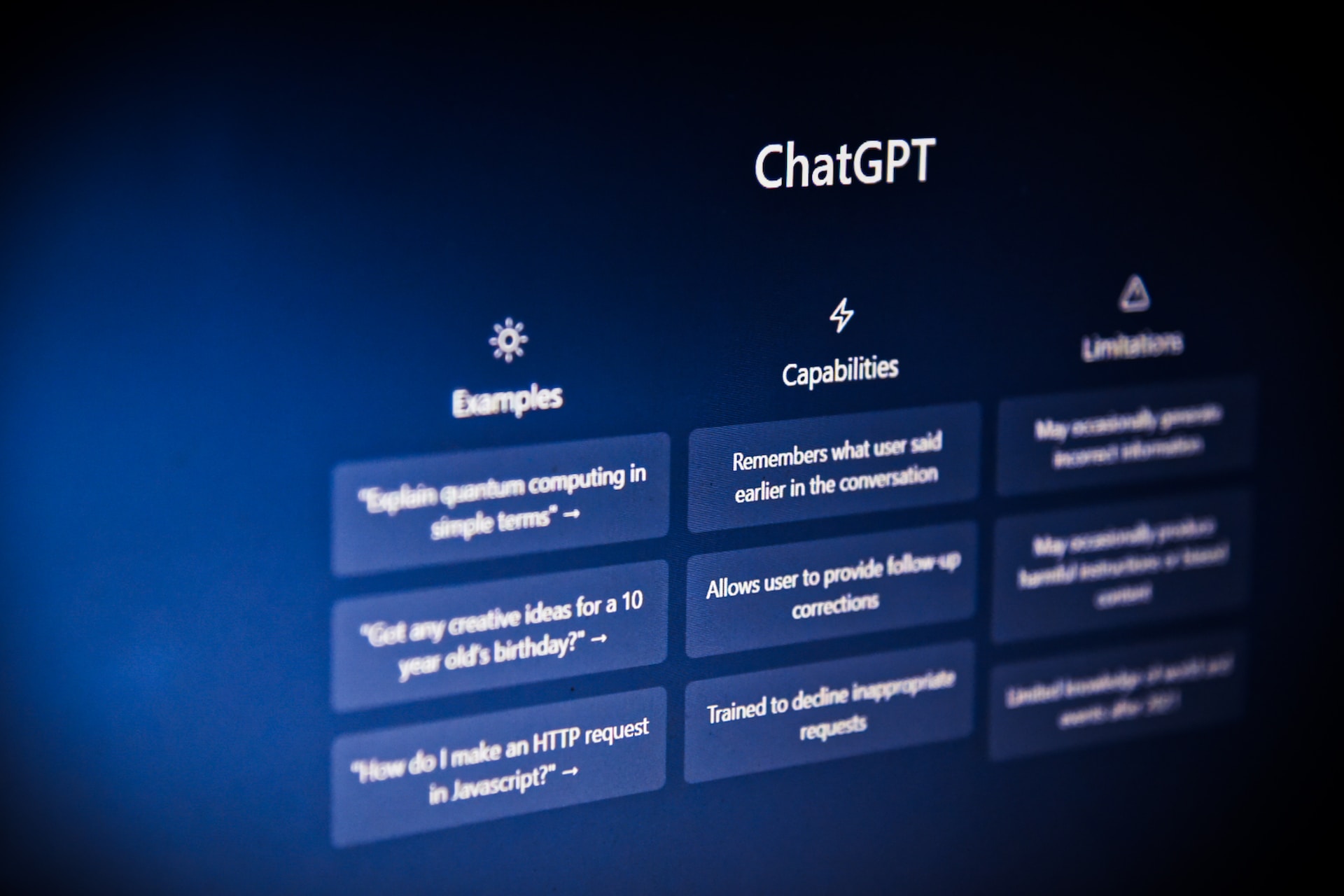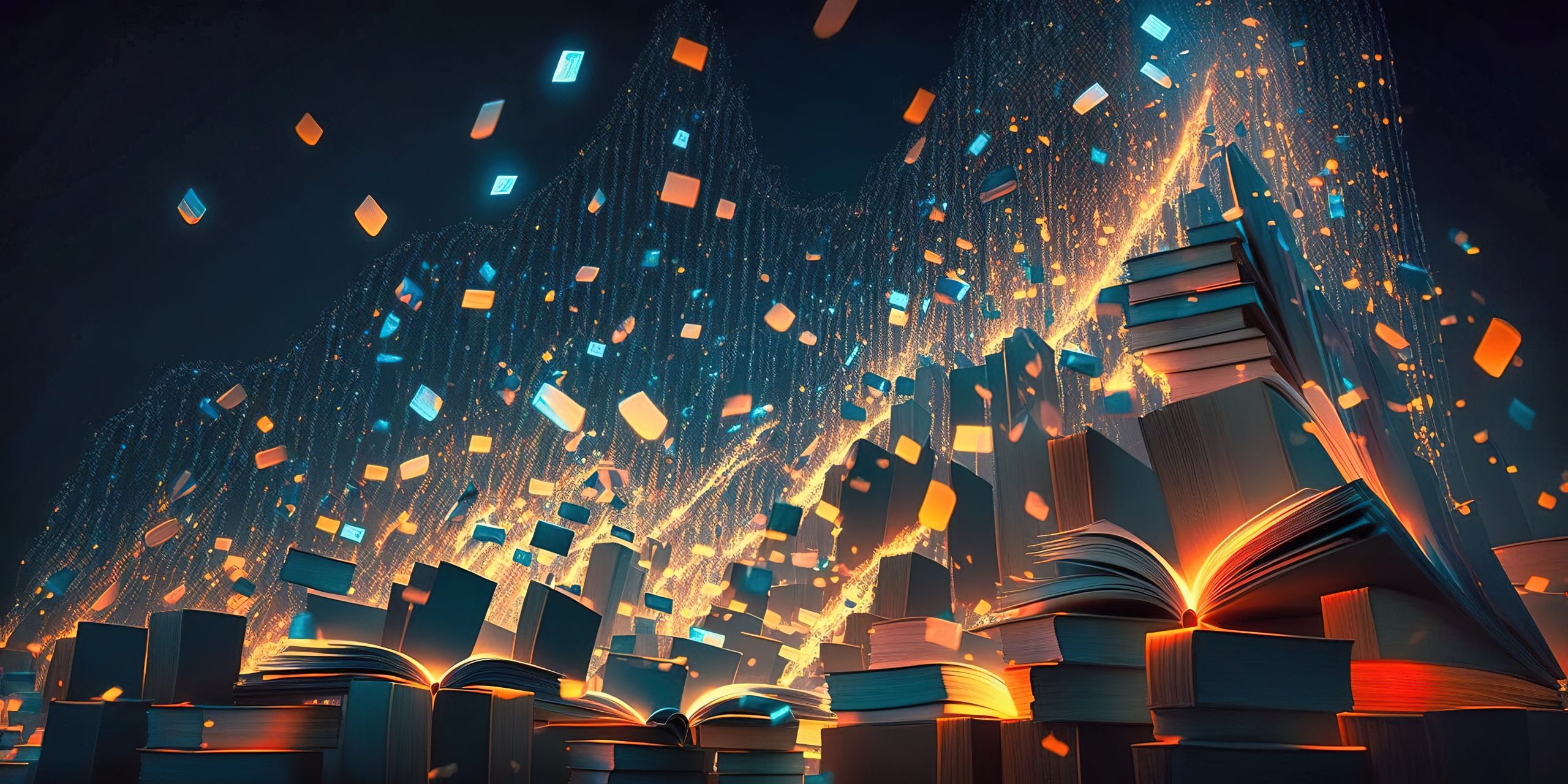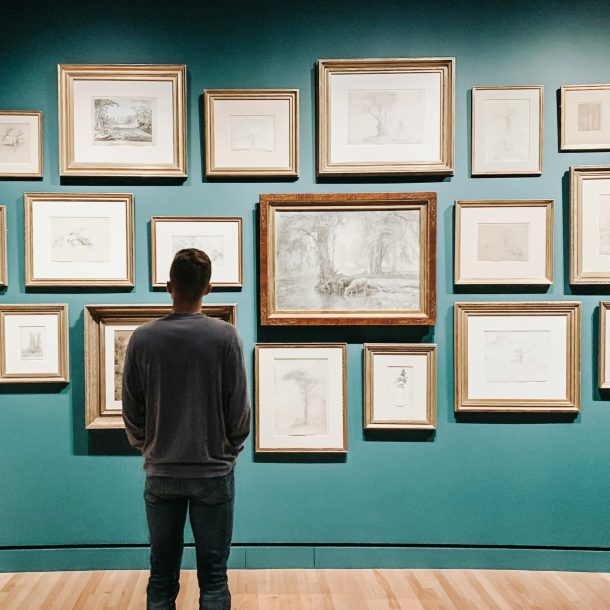The rise of AI needs no introduction. We’ve all watched AI slowly infiltrate every aspect of the business world, especially with big data’s rise. Then, suddenly, we witnessed ChatGPT become a household name in record time, and every other organisation is rushing to compete. It feels like we’ve watched history in the making, but no one is quite sure where it all will lead.

Sometimes it seems like AI lurks around every corner, completing every sentence on every platform. Whether that feels creepy or convenient is an individual sentiment, but for the most part, the technology seems empowering. It is enabling people to do things today that they wouldn’t have done before.
Almost everyone I know is using AI to produce written content these days. It’s not uncommon to hear small business owners excitedly talking about how they’ve taken marketing content into their own hands. Even people who typically shy away from new software and technology are creating all sorts of new content to support their personal brands and businesses. If that isn’t empowerment, I’m not sure what is!
AI: from writing to storytelling

If we turn our attention to the greater art of storytelling, we need to look beyond the content we write for the Internet or the books we author. There is also visual and audio storytelling. Telling stories is about transmitting knowledge and connecting with the viewer or listener… it’s how we remember things, visualise things, and sometimes how we pass along survival skills from one generation to the next. No matter, AI is going to influence the stories we tell with music, books, videos, and imagery in incredible ways.
And what about movies—the ultimate audio-visual storytelling format? Joe Russo, co-director of several Marvel movies and streaming series, recently predicted that generative AI would be able to create full-length feature films in about two years’ time. While it may take some time to fully automate box office hits, AI is sure to change the way we tell stories and consume them.
There are so many ways to tell a story (and so many ways AI is influencing all of them), but let’s get back to the main question. Does the rise of AI put us at risk of losing storytelling as we know it? Perhaps we should consider it an evolution, not a ‘loss’, but the issue is still complicated.
Maintaining our story construction skills
Humanity went through quite a lot to be able to tell stories the way that we do now. Art has become so much more advanced through art education and digital technology. In addition, today, literacy is commonplace and even taken for granted in many parts of the world. Reading and writing skills are a fundamental part of the curriculum in schools around the world.
While I don’t believe reading skills are in grave danger, you could argue that AI might deal some serious damage to writing skills. We spend a lot of time studying basic maths skills in school, but isn’t it easier to rely on a smartphone calculator? Past generations seem to have all the answers to basic household tasks that younger generations frequently consult Google and YouTube to learn about.
So, wouldn’t it make sense that, as humans rely more and more on intelligent writing technology to compose stories—or any content—our writing skills might atrophy?
While AI can be a fantastic tool for storytelling, if we let our writing skills go and start to rely too heavily on technology, there’s the possibility that humans might forfeit their ability to drive the story where they want it to go.
Beyond writing, there are artists, singers, actors, dancers, illustrators, animators, choreographers, directors, producers, set designers, and so many other people behind modern-day stories. While writers feel like an easy target in this stage of AI development, some roles seem far more difficult to replace with technology. As we develop new ways to tell stories, we won’t necessarily lose the ways we tell stories today.
But will we lose all originality?
Tricky question. AI operates on patterns that exist in data. It was built to learn from the data it has been fed and replicate those patterns. That leads to several other questions about what data each AI platform is fed. The fact that different AI tools are based on different data sets makes them inherently unequal. (Even more alarming is how the tools may amplify inequality on a social level, but we’ll save that for another day.)

The good news here is that AI has not lived or experienced emotions, and there’s plenty of room for writers to keep making a personal impact on storytelling. The bad news is that there’s a danger that we’ll lose some of that originality—and the element of storytelling altogether—in projects that put creatives up against tight deadlines.
More time for creativity, strategy, art, and joy? Maybe not.
Speaking of tight deadlines, let’s talk productivity.
2023 is almost half over, and I don’t know how that’s possible. Time is a precious commodity! One of the beauties of AI is that it allows us to save and reallocate time. With all the time we’ve freed up in structuring stories because our favourite AI tools did some of the work for us, might we be able to use our creativity even more than we used to? Or will we get lazier?
Will we use AI as our primary writing resource and use our skills of strategic thinking to create new ways to tell stories? Will we develop new creative concepts, create new storytelling formats, and enjoy the process even more?
OR will changing expectations suck all of the fun out of creation as artists, creators, writers, and other storytellers are expected to produce more in less time?
In the name of transparency, I’ve used AI writing tools to create entire articles in the recent past. But once I get the prompts right and have the final product in front of me, reading those articles generally makes me feel empty. The writing might be excellent, and the final product might be in the perfect tone of voice, but somehow I always feel a little left out. As a writer, I’ve always enjoyed the transformation process, and when AI does all the work, from start to finish, that process is gone.
That process doesn’t require starting from scratch. Even when someone comes to me with a direction or even a full outline, and I’m not expected to create something from nothing, the evolution from general ideas to a full story is a process that brings me a lot of joy. One personal fear of mine is losing the ability to participate in that evolution—even if it does save a few hours of my day.
The fiery death of writer’s block
For mental health’s sake, let’s venture where there is absolutely nothing negative to say. AI is a writer’s block killer!
Storytelling is often a messy process. Many times writers get stuck and just don’t know what to say. I, for one, choose to look at AI as the fiery, painful death of writer’s block. AI has certainly gotten me out of a dark and frightening hole on multiple occasions over the last few months, and I’m sure other writers feel the same way. Perhaps that’s why so many tools are—wisely—named ‘writer’s assistants’.
Beyond writing, I believe that AI is a tool that should go into every professional storyteller’s toolbox. Even the storytellers who reject the notion of using AI could benefit from starting to use it sooner rather than later. As with most recent technologies that suddenly gain popularity, there’s a benefit to getting in and understanding the technology early.
AI: a new future for storytelling?
So, is AI the death of storytelling? The answer isn’t clear-cut, and there are so many other elements—from education and training to social considerations—to explore. AI brings both potential threats to the art of storytelling and exciting opportunities for its evolution.

As consumers, will we want to read stories with a label that says ‘human-written content’ on the cover, similar to the way we label minority-owned businesses on search engines and product packaging? Or will we look at stories as stories, no matter how much human involvement was required?
Perhaps the most interesting story of all is one that we’ll tell, as a society, through our increased use of AI. I hope we will view AI as a partner, not a replacement. Looking at AI as a partner will help us keep human empathy and retain the personal joy in telling stories. And, as with any great partnership, two voices are better than one. And with all that extra computing power by our side, I have a feeling we’ll create so many amazing new things and witness a breathtaking evolution in storytelling










